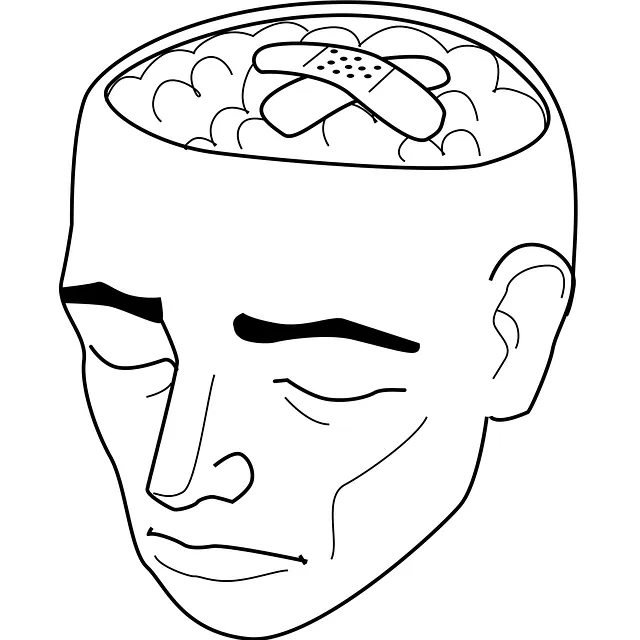Englewood Kaiser Permanente behavioral health services offer a holistic approach to trauma recovery, combining evidence-based therapies like CBT and EMDR with culturally sensitive care. They provide tailored support, focusing on coping skills, stigma reduction, and building resilience through group therapy and community outreach. Their safe, supportive environment encourages open communication and emotional release, empowering individuals to manage symptoms, regain control, and find lasting anxiety relief.
Trauma, an indelible mark on the human psyche, demands tailored support systems. In this landscape, Englewood Kaiser Permanente Behavioral Health Services stands as a beacon of hope, offering comprehensive trauma support. The article delves into understanding trauma’s profound impact and highlights the innovative approaches implemented by these services. We explore effective strategies that foster healing, emphasizing the unique model of Englewood Kaiser Permanente. By examining these practices, we aim to enhance access to quality care for those navigating the aftermath of traumatic experiences.
- Understanding Trauma and Its Impact
- Englewood Kaiser Permanente Behavioral Health Services: A Comprehensive Approach
- Effective Strategies for Providing Trauma Support Services
Understanding Trauma and Its Impact

Trauma is a profound and complex experience that can have lasting effects on an individual’s mental and emotional well-being. It often results from overwhelming adverse events, such as accidents, violence, or natural disasters, leaving people with feelings of fear, helplessness, and distress. At Englewood Kaiser Permanente behavioral health services, we recognize the profound impact trauma can have on individuals, families, and communities.
Understanding trauma involves acknowledging its far-reaching consequences. It can manifest in various ways, including physical symptoms like chronic pain and sleep disturbances, as well as psychological manifestations such as flashbacks, nightmares, and heightened anxiety. The effects of trauma don’t discriminate; they can impact people from all walks of life. Through dedicated support services, Englewood Kaiser Permanente aims to provide a safe space for healing, focusing on evidence-based practices to facilitate coping skills development and mental illness stigma reduction efforts. This holistic approach prioritizes empowering individuals to regain control, manage symptoms, and find lasting anxiety relief.
Englewood Kaiser Permanente Behavioral Health Services: A Comprehensive Approach

Englewood Kaiser Permanente Behavioral Health Services stands out for its comprehensive approach to trauma support. This healthcare provider offers a wide array of services designed to cater to diverse individual needs, focusing on both short-term relief and long-term recovery. Their programs include evidence-based therapies, such as cognitive behavioral therapy (CBT) and eye movement desensitization and reprocessing (EMDR), which have proven effective in treating complex trauma. Beyond traditional therapy, the services extend to community outreach and education, emphasizing the importance of social skills training and building resilience within affected populations.
One notable aspect is their commitment to cultural sensitivity in mental healthcare practice. Recognizing the impact of cultural background on trauma experiences, Englewood Kaiser Permanente integrates culturally responsive care into its service delivery model. This approach ensures that patients from various ethnic and socioeconomic backgrounds receive tailored support, fostering trust and encouraging open communication. By combining advanced therapeutic techniques with a deep understanding of cultural nuances, these services aim to enhance healing outcomes and promote overall well-being in the community.
Effective Strategies for Providing Trauma Support Services

Englewood Kaiser Permanente behavioral health services have pioneered effective strategies for trauma support, emphasizing a holistic approach to healing. One key strategy is creating safe and supportive environments where individuals feel comfortable sharing their experiences. This involves trained professionals who listen actively, fostering an atmosphere of empathy and understanding. By normalizing conversations around trauma, patients are encouraged to express themselves openly, promoting emotional release and beginning the process of healing.
Additionally, integrating evidence-based therapies like Cognitive Behavioral Therapy (CBT) and Eye Movement Desensitization and Reprocessing (EMDR) has proven beneficial. These techniques help individuals challenge negative thought patterns related to trauma and process memories more adaptively. Encouraging participation in group therapy sessions also boosts confidence and provides a sense of community, as sharing experiences with peers who have faced similar challenges can foster a powerful sense of belonging and positive thinking. Enhancing Mental Health Awareness through such initiatives plays a pivotal role in ensuring individuals receive the comprehensive support they need to navigate their traumatic experiences effectively.
In light of the far-reaching effects of trauma, implementing comprehensive and effective support services is more crucial than ever. The example set by Englewood Kaiser Permanente Behavioral Health Services demonstrates that a holistic approach can significantly enhance recovery outcomes. By integrating various strategies as outlined in this article, organizations can better navigate the complex landscape of trauma support, ultimately fostering resilient communities and improved well-being for those affected by traumatic events.


